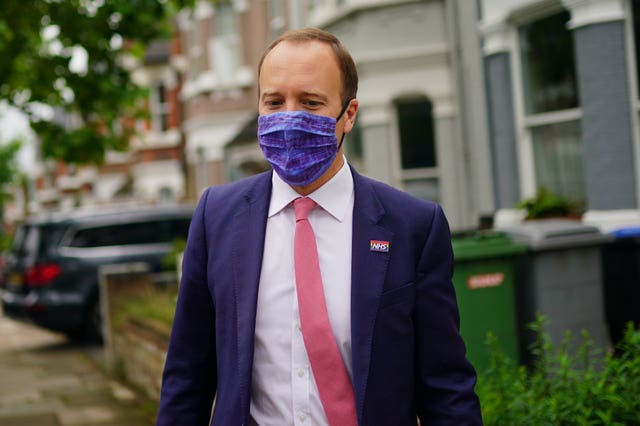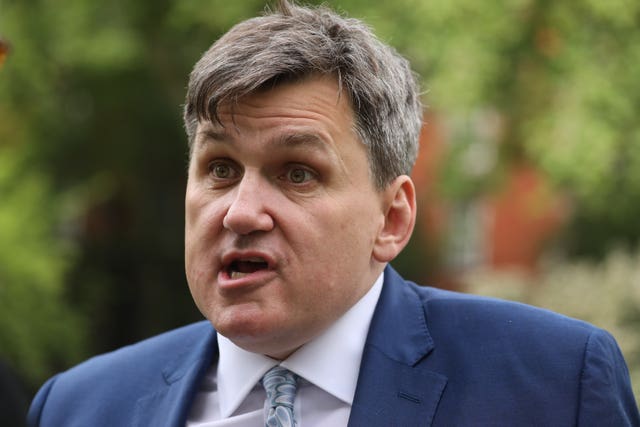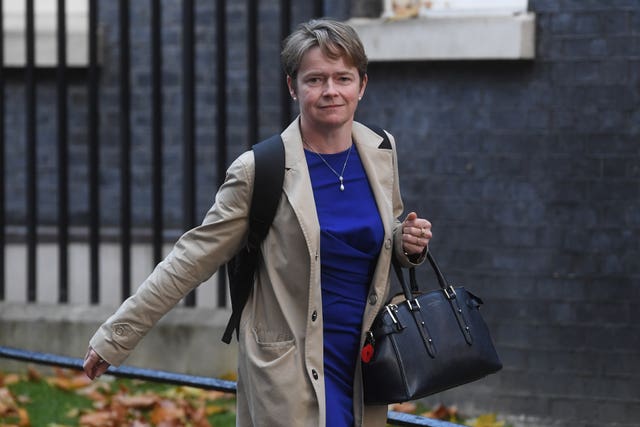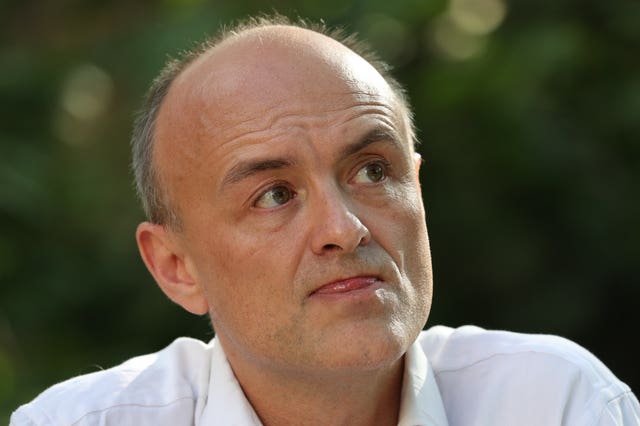
Health Secretary Sajid Javid is the latest senior member of the Government to contract Covid-19.
His positive Covid test result has forced the Prime Minister and Chancellor into quarantine after they were contacted by NHS Test and Trace.
Throughout the pandemic the virus that “does not discriminate” has affected ministers, MPs, political advisers and health officials alike.
Here, the PA news agency looks at how some high-profile names have been affected:
– Health Secretary Sajid Javid
My positive result has now been confirmed by PCR test, so I will continue to isolate and work from home.
Here’s a handy reminder of which test you may need and when: pic.twitter.com/cX7Ypye3X6
— Sajid Javid (@sajidjavid) July 17, 2021
The recently appointed Health Secretary had only been in the post for about three weeks before he disclosed he had tested positive for Covid-19 and was experiencing “mild” symptoms.
After a PCR test confirmed his infection, Mr Javid said he would continue to isolate and work from home.
– Prime Minister Boris Johnson
In April last year, the Prime Minister Boris Johnson became the first world leader to be admitted to hospital after testing positive for coronavirus, while several of his top team were also affected.
His condition deteriorated sharply and he spent three nights in intensive care before recovering.
In November, Mr Johnson was forced back into self-isolation after a meeting with Tory MP Lee Anderson, who subsequently tested positive for coronavirus.
Five other Tory MPs and two political aides were at the meeting and had to isolate, with the incident forcing Mr Johnson to answer Prime Minister’s Questions remotely.
– Former health secretary Matt Hancock

The former health secretary, who resigned after breaking coronavirus guidance by kissing an aide, announced he tested positive for coronavirus on the same day as the Prime Minister last year – March 27. He returned to work after self-isolating.
In January this year Mr Hancock self-isolated after being alerted by the NHS Covid-19 app that he had come into close contact with someone who had tested positive.
– Policing Minister Kit Malthouse

In March this year it emerged that Policing Minister Kit Malthouse triggered a coronavirus alert at the Home Office after testing positive.
Officials at the time said Mr Malthouse “promptly” left the department’s headquarters in central London after being informed of the result of a lateral flow test he took on the way into work.
The Sunday Times reported that a number of staff from two teams of officials working in the building had been required to self-isolate as a result, while officials insisted no protocols were broken and that the Home Office’s Covid team had been informed “promptly and verbally” of what had happened.
– England’s chief medical officer Professor Chris Whitty
Following the announcements in March last year that Mr Johnson and Mr Hancock had tested positive, England’s chief medical officer Professor Chris Whitty said he had also displayed symptoms of coronavirus and would be self-isolating. He returned to work that April.
– Baroness Dido Harding

In November last year, Baroness Dido Harding, at the time leading the NHS Test and Trace programme, said she was self-isolating after receiving an alert from the service she ran.
– NHS national medical director Professor Stephen Powis
NHS national medical director Professor Stephen Powis said he was self-isolating in November last year after a member of his household tested positive for coronavirus.
He told a Downing Street briefing remotely that he was asymptomatic and feeling fine but was going to stay at home and complete his period of self-isolation.
– Dr Jenny Harries
In April last year, England’s then deputy chief medical officer Dr Jenny Harries said she believed she had coronavirus, and was off work for 10 days.
Now chief executive of the UK Health Security Agency, she told ITV’s Lorraine at the time that she found it a “very unpleasant experience”, adding: “I’m usually very fit and healthy. I was really very knocked off, probably for about a week.”
– Dominic Cummings

The PM’s ex-top political adviser Dominic Cummings showed symptoms of Covid-19 and decided to self-isolate, Downing Street confirmed on March 30 last year.
In a press conference from the Downing Street rose garden in May 2020, Mr Cummings later said he had felt so ill in early April he could “barely stand up”.
Mr Cummings was pressured into giving the statement after public outrage at him driving from London to County Durham with his wife and son during the first lockdown.
– Labour leader Sir Keir Starmer
In January it was disclosed the Labour leader Sir Keir Starmer was self-isolating for the third time since the pandemic began, after he came into contact with someone who had tested positive for coronavirus.
The former director of public prosecutions was previously forced to quarantine in both September and December.
– Health Minister Nadine Dorries
Nadine Dorries was the first sitting Member of Parliament to test positive for Covid-19, revealing the news on March 11 last year.
The Mid Bedfordshire Tory MP, who is also a health minister, later said it took her seven days to “turn the corner” and begin to recover from the virus.


Comments: Our rules
We want our comments to be a lively and valuable part of our community - a place where readers can debate and engage with the most important local issues. The ability to comment on our stories is a privilege, not a right, however, and that privilege may be withdrawn if it is abused or misused.
Please report any comments that break our rules.
Read the rules here